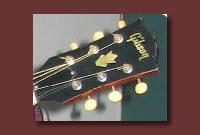Spit, Polish, Graduation, and Orders.
 The drill sergeant told us, “Gentlemen, tomorrow is graduation day. Be sure to look sharp for all the mamas in the audience.†The eight weeks of other-worldliness that had been basic training at Fort Dix in 1968 had finally come to an end.
The drill sergeant told us, “Gentlemen, tomorrow is graduation day. Be sure to look sharp for all the mamas in the audience.†The eight weeks of other-worldliness that had been basic training at Fort Dix in 1968 had finally come to an end.
That night we spent hours carefully spit shining our shoes, polishing our brass, and packing all our uniforms (other than the dress uniform we would be wearing to graduation) into our duffel bags. We had to be packed and ready to leave the next day, because, after graduation, we would be receiving our orders. Although I was glad that basic training was finished, I shined, polished, and packed in a bit of a daze, wondering what my orders would be. I knew that, as a draftee, the odds were that I would be an 11B (“Eleven Bravo†– Infantry). That would mean eight weeks of Advanced Infantry Training, most likely in Fort Polk, Louisiana, a thirty-day leave, and then a trip to Vietnam, and the thought of that frankly scared hell out of me. I didn’t sleep very well that night.
The following morning, we all donned our “Class A†dress uniforms. Some of us, who in the eyes of the Army did better than most in basic training, sported the single stripe of a Private E-2 (referred to by the drill sergeants as “skeeter wingsâ€). At the formation that morning, the eight weeks of training and the spit and polish showed. We actually looked like a real Army unit. The sergeants and the company officers also showed up in their “Class A” uniforms. It was the first time we had gotten a look at the decorations that the drill sergeants had earned. There were more than a few bronze stars and even a greater number of purple hearts.
We marched to the auditorium, where the ceremony was to take place. As we entered, I saw that members of my family were seated in the audience. They had taken the Friday off from work to be there. Just eight months earlier, they had attended different graduation – my graduation from college. I had more hair for that one, and I wasn’t wearing green.
I don’t remember much about the ceremony other than that our platoon sergeant won the award for the “Drill Sergeant of the Cycle.†I recall how crisply he executed his facing movements while he was on the stage to accept his award. It must have been the result of all that practicing he told us he regularly did in his bathroom. (see 2/3/03).
After the ceremony, we got to spend only a few minutes with our families, and then it was back to the barracks to get our gear and await orders. Shortly after arriving at the barracks, we were directed to report to the orderly room in company headquarters, as our orders had “come down.â€
In the orderly room, one of the sergeants had a list from which he read each name, followed by the military occupation specialty (MOS) that had been assigned to that person, and the person’s next training destination. So, it went something like, “Anderson, Thomas, Eleven Bravo, Infantry, Fort Polk. Jones, Edward, Thirteen Bravo, Artillery, Fort Sill.†This went on for some time, with most of the guys getting infantry or artillery orders. The sergeants, all infantrymen, referred to the guys with artillery orders as “cannon cockers†or “lanyard pullers.†(One fires an artillery piece by pulling a lanyard.)
My heart was in my throat as each name was announced. After a while, it seemed as if everyone’s name had been called but mine. By this time, I was actually feeling nauseous. Finally, the sergeant stared silently down at the list with a puzzled look on his face. As long as I live, I will remember his exact words: He looked up from the list and said, “We have one man goin’ to some f*****g place called Fort ‘HOLLY BIRD’. What the f*** kind of place is that?†He then identified me as the one man and told me to see the First Sergeant for a copy of my orders.
Army orders are a mishmash of jumbled abbreviations and numbers, presumably necessary to keep track of thousands of people moving all over the earth, but utterly unintelligible to all but those whose job it is to understand them. I looked at the alphabet soup on the paper and could see that what the sergeant had referred to as Fort “Holly Bird,†was actually “Fort Holabird.” I never heard of the place. I looked all over the document for my MOS, hoping not to see an “11B†anywhere on the page. It appeared to me that my MOS was not a tidy two digit number followed by a letter, but rather it was a messy “96C2L29.â€
Completely confused, I asked the First Sergeant if he knew anything about Fort Holabird and what my MOS was. He said, “Damned if I know. You’ll just have to go there and find out.†Great. Just Great. When will I ever be out of Bizzaro Land?.
We were taken on a bus to the Fort Dix Transportation Center, where we would be issued tickets to our destinations. Most guys got airplane tickets and would be traveling as a group. I would be traveling alone. When it was my turn, I expected to be given airplane tickets, but the guy behind the counter handed me two bus tickets. I asked, “Could you please tell me where I am going?â€
He looked at my orders and then at the tickets and said, “Fort Holabird. It’s in some town outside Baltimore. This ticket gets you to Baltimore and this other ticket is for the local bus that takes you to the base.â€
I asked, “What kind of base is Fort Holabird?â€
I guess my previous question had been one question too many, for he replied, “How the f*** should I know what kind of base it is. I never heard of the place until just now. My job is just to get you there.â€
I wondered how it could be that the sergeants, some of them with twenty years in service, had never heard of the place? So, what the hell kind of place I was being sent to – alone?
When the bus to Baltimore arrived, I dragged my heavy duffle bag aboard and took a seat. It was the first time in eight weeks that I was among civilians. All of them stared. Some of them smiled, some of them glared. That’s the way it was then.
I looked out the window as New Jersey slipped by, and I wondered what would be next.




